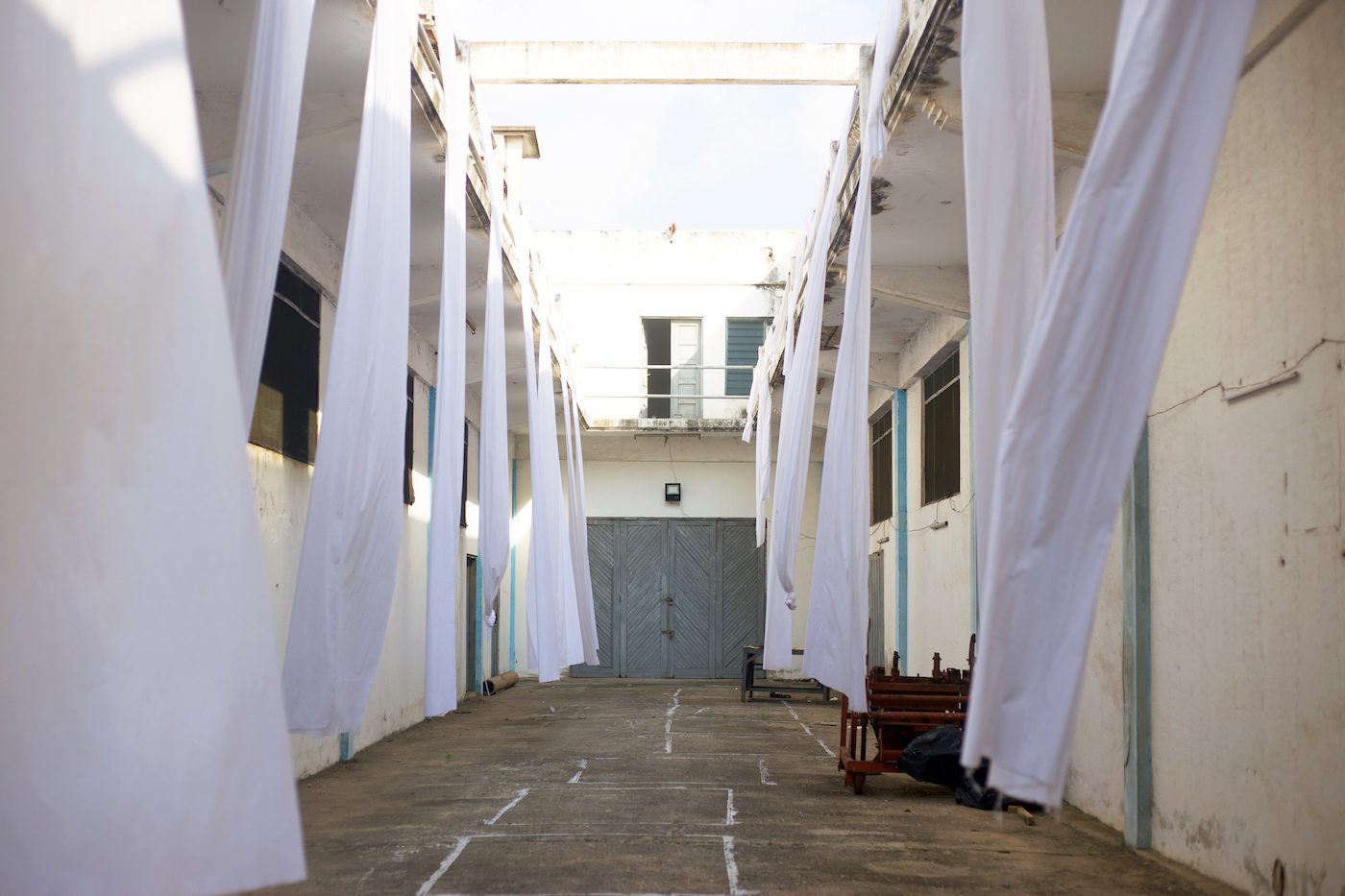Noldor reveals extensive expansion plans and welcomes Gideon Appah, Abigail Aba Otoo and Joshua Oheneba-Takyi as artists in residency.

View of the Noldor Artist Residency, Labadi, Accra. Courtesy of the Noldor Artist Residency
Inaugurated in November 2020, the Noldor Artist Residency is Ghana’s first independent arts residency and fellowship program for contemporary artists from Africa and the Global Diaspora, located in Accra, Ghana. Founded by contemporary art specialist, social entrepreneur and philanthropist Joseph Awuah-Darko, Noldor announces the expansion of its existing programming and warehouse spaces. The new senior and junior fellowship programs extend Noldor’s continuous support to contemporary artists from Africa and its diaspora.
In addition to its annual four-week artist residency, Noldor unveils a year-long program for senior and junior fellows to take place in its newly renovated 700-square-meter warehouse spaces. Forging a flourishing artistic commune, the new initiatives invite artists to collaboratively extend and deepen their practices. The very disposition of the warehouse space encourages this artistic experimentation. A U-shaped structure with connecting footbridges and exposed to extensive light, it is divided into several broad volumes adapted to a variety of formats and mediums.
Set in Accra’s blooming Labadi district, the residency is rooted in the seafront area’s fervent cultural life, nourished by a growing creative community that brings together artist studios, cultural centers and social venues as well as reputed Ghanaian artist Ablade Glover’s Artists Alliance Gallery, the largest art gallery in Sub- Saharan Africa. While the artist residency and fellowships provide the tools for the artists to develop themselves creatively, the program as a whole ensures and fosters a fruitful exchange between them, all-the-while placing Noldor at the heart of a broader local and global artistic ecosystem.
“The notion of the artistic commune is a recurring theme throughout art history,” explains Noldor’s founder and director Joseph Awuah-Darko. “These often-repurposed industrial spaces, among which Beijing’s reputed 798 art district, have acted as havens for some of the most iconic artistic production in history. By revisiting these decaying warehouses – once a vast pharmaceutical factory complex – we envisioned and seized their full potential at a time when access to artistic infrastructure and resources is extremely limited in Ghana. Beyond the material support to its artists, Noldor mirrors the organic and collaborative dynamics that characterize past and current artist communities – establishing it as a thriving hub for contemporary art, committed to nurturing its artists’ creative process.”
Senior Fellowship
Only a few months after the inaugural artist residency of emerging Ghanaian artist Emmanuel Taku, Noldor welcomes its first senior fellow, prominent Ghanaian artist Gideon Appah (b. 1989, Accra). Appah has been invited to take over Noldor’s extensive fellow studio space for the coming year. In a continuous exchange, Appah will act as a mentor and experienced resource, all-the-while focusing on his studio work and on producing a dedicated portfolio ahead of a private showing at the end of the fellowship.
Aimed at mid-career artists from Africa or its diaspora, whose practice reflects Noldor’s affirmed African identity and vision, the senior fellowship ensures the representation of an experienced artist within its community – and the benefits of this presence to Noldor’s emerging participants.
Junior Fellowship
Working alongside the annual artist resident and senior fellow, Noldor’s inaugural junior fellows, emerging Ghanaian artists Abigail Aba Otoo (b. 1997, Accra) and Joshua Oheneba-Takyi (b. 1997, Kumasi) will set their studios in the adjoining building, accessible through a connecting bridge and recently renovated as a shared warehouse space topped by designated studios for each fellow.
Aimed exclusively at emerging artists living and working in Ghana, the junior fellowship offers year-long access to Noldor’s artistic resources and spaces where, in close contact with the other inhabitants of the space, the participants are encouraged to challenge their visual language as they work on creating a full portfolio of work. Upon completion, Noldor’s goal is to launch the junior fellows into the primary art market in partnership with a commercial gallery.
The new fellowships further solidify Noldor’s goal to support African artists – both local and global, emerging and established – through their creative process, while acting as a pillar for their introduction and development within the Ghanaian and global contemporary art scenes.
More Editorial